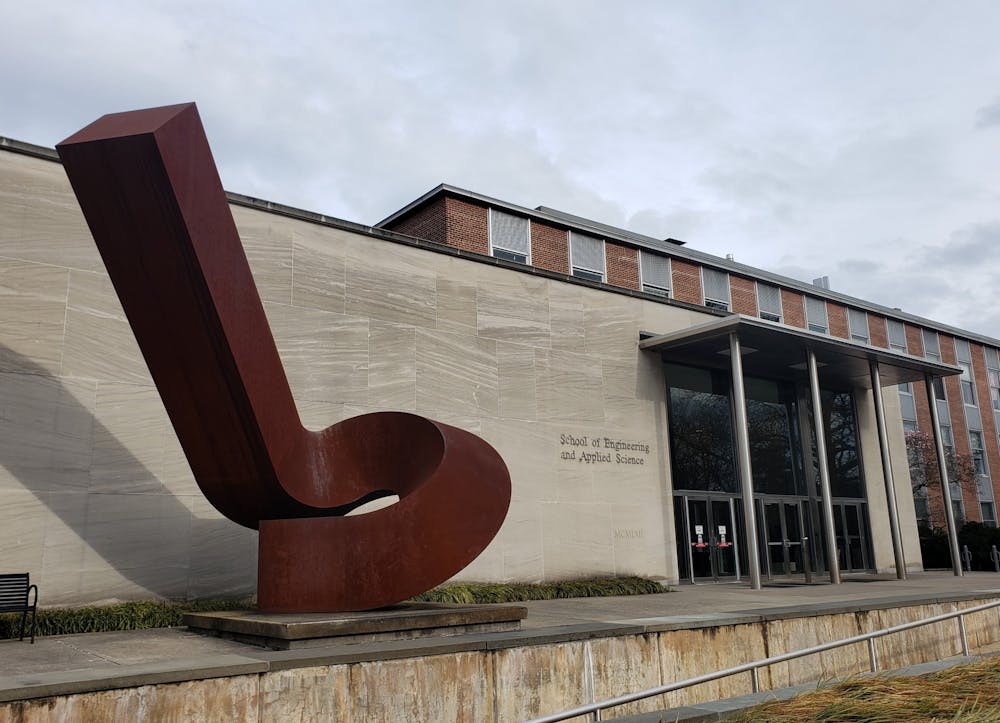On Saturday, March 21, the University’s Dean for Research Pablo G. Debenedetti announced that all “non-essential on-campus” research activities would cease in response to Executive Order 107, which New Jersey Governor Phil Murphy signed on the same day.
In an email, Debenedetti asked all faculty and facility directors responsible for research activities that met those criteria to initiate shut-down procedures.
Certain individuals have been granted exceptions, in cases for which “interruption would have unacceptably negative consequences.”
In addition, those with critical maintenance or monitoring responsibilities that require “regular attention from a person to maintain laboratory viability” — such as providing animal support, maintaining shared computational equipment, and overseeing equipment that requires gas or cryogenic monitoring and servicing — may be granted special approval by the Office of the Dean for Research.
Veterinary care staff will continue to maintain the health and welfare of research animals, and offices that support environmental health and safety in research will continue to function.
“In calling for this step, I want to acknowledge the sacrifice that you are making to suspend research activities, whether it is delaying experiments or terminating those in progress,” Debenedetti wrote in the email.
“We have not made this decision lightly or without recognition of what it means for researchers at Princeton, including our talented graduate students, postdocs, and other research staff,” the message continued.
“Under no circumstances should a graduate student or postdoctoral researcher be compelled to perform on-campus activities against their will,” Debenedetti added.

In a separate email sent out to research faculty and staff on Saturday night, Debenedetti announced that the University’s Emergency Management Group will be asking departments, laboratories, and other centers to store N95 respiratory protective masks, gloves, gowns, protective eyewear, and any other personal protective equipment “not otherwise needed for the operation of campus laboratories.”
“Environmental Health and Safety is finalizing a plan to inventory and collect available campus supplies of these items,” the email read.
“In the meantime, if you receive an inquiry from an external organization requesting donation of supplies or equipment, please share that request with [the Office of Environmental Health and Safety] to ensure that our response is coordinated with state, county, and local emergency planning officials.”
In an email sent to graduates students and research staff in the School of Engineering and Applied Science (SEAS) on Sunday, Vice Dean of SEAS Antoine Kahn GS ’76 GS ’78 emphasized that individuals are not permitted to return to the E-Quad or other SEAS buildings for the duration of the emergency, “except for essential lab duties.”

After Monday night, the University will restrict access to SEAS buildings, which will be open only to those authorized by the SEAS and the Office of the Dean for Research.
Professor of Chemical and Biological Engineering and Director of the Program in Engineering Biology Celeste M. Nelson, the principal investigator of the Tissue Morphodynamics Laboratory, described her laboratory’s shutdown procedure as “exhaustive.”
According to Nelson, to shut down their experiments, researchers cleaned off laboratory benches, tidied their desks, backed up their data, copied lab notebooks, set up remote access, adopted houseplants, and vacated the premises, among other steps.
“Small teams shut down each of the specialized rooms and common spaces — all while maintaining social distancing and washing their hands frequently,” she explained.
Nelson said that all electronic devices other than freezers and refrigerators were turned off and unplugged. All standing supply orders — including fertilized eggs — were canceled, and cell lines were frozen down. All in-progress experiments were discarded.
In the face of the sweeping shutdown, Nelson said that her lab plans on taking advantage of the time to analyze data, plan projects, write up results, and read papers.
Lab meetings and journal club meetings will be held every week using Zoom, and Nelson will continue to meet individually with graduate students and postdoctoral researchers.
“Time away from doing experiments often results in new ideas and a renewed excitement for scientific discovery,” Nelson said. “We’ll try to make the best of a situation none of us want, all while keeping ourselves healthy.”








